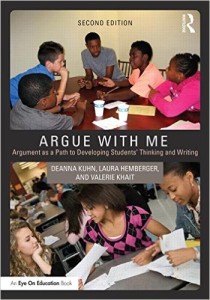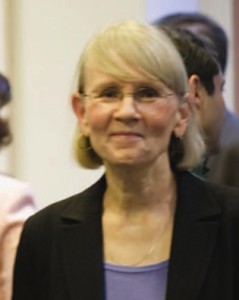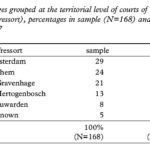How Do We Prepare The Next Generation Of Citizens?
No Comments yet“College and career readiness” is the objective American educators are focused on these days, and it’s one both students and their parents will approve. Both want assurance that the cost and rigors of getting into and through college will pay off as a sure ticket to life success. A recent Harvard poll showed achieving this personal success to be the number one concern of today’s youth, and parents are likely glad to know. The broader purposes once associated with higher education have taken a back seat as college increasingly becomes a strict means to an end.
An initiative introduced recently at a premier suburban public high school in the US Northeast seems well aligned with this focus. Taking advantage of now widely available technology, beginning in 9th grade students are required to begin a “digital portfolio project” to “track their accomplishments throughout their high school careers and choose how the world perceives them.” Student reactions are reported to be positive. One spoke of it as an opportunity to set new goals for herself and a good reflection of what she achieves over the next four years. Another said it will be a good tool, especially for college applications. Instituting this future-oriented focus early on will perhaps be useful in helping teens to construct an identity and succeed in communicating it to others who can acknowledge and validate it, rather than postpone this task to the extended adolescence now frequent among twenty-somethings.
Yet absent from this focus is another dimension of preparing for adulthood, one that extends beyond individual success, to collective prosperity. It’s one long regarded as a central aim of education in a democracy – preparation for citizenship. A US election year reminds Americans of its significance. The American president elected this year will likely still be in office when today’s high schoolers begin their adult lives. Is establishing a personal identity and life trajectory enough to prepare them sufficiently for responsible citizenship under this president in their increasingly troubled nation and world?
A cursory look at the current political climate could be seen as reassuring in this regard. Although a segment of the citizenry lament the emphasis of image over ideas, modern media provide us a never before known opportunity to get to know the candidates, up close and personal. Candidates are well aware of their need for a skilled team to project a carefully shaped and managed image – their life story, the experience they bring to the job, and, most important, what kind of person they truly are. Above all, this image must portray them as personable and likeable, appealing to many.
Possibly, then, beginning as a young teen to shape one’s image and even to communicate it effectively in modern digital form is not far off the mark. Many of the teens afforded this opportunity aspire to leadership roles, and they are getting a head start in projecting who they are. They are learning the art and craft of branding and promoting a self.
Another view is that this accomplishment falls short and that we can and must do a good deal more if we wish to prepare our youth as citizens, ready to act in a democratic society that depends on their contribution. More than a few observers today find the level of discourse of the presidential candidates unsatisfying. There is a range, of course, from Trump at one extreme (“Look who I am”) to Sanders (“Here’s what we must do”) at the other. Yet, most of us, given the choice, would prefer all candidates, as a matter of course, to debate ideas rather than merely project images and for citizens to cast their votes based on these ideas.
If so, it is our responsibility to prepare our youth to become citizens who will have the vision and will to transform this preference into a reality. If we want people to think and talk about ideas, and solutions, we need from early on to afford them extended practice in doing so. There is of course a significant segment of the adult population who want their youth to consider only those ideas these adults themselves subscribe to. Yet, in work my colleagues and I have undertaken using modern technology to engage middle- and high-school students in electronic dialogs with peers on controversial social issues, we have found them keen to contemplate such issues at length with multiple partners, culminating in their writing individual “Letters to the Editor” position statements on them. Abortion is a topic they most frequently want to address, among numerous others such as foreign aid and criminal justice. Their initial ideas are often naïve and narrow, but that changes as they confront and respond to others’ ideas and examine evidence that bears on them. Some, for example, propose that instead of testing new drugs on animals, it would be better to use human prisoners since they are guilty and animals are innocent. With deliberation such ideas in time self-correct. Students also gain awareness of issues worth talking about. When we asked young teens in a New York City low-income school what the most important issues were that the new president will have to address, all but a very few mentioned just two, homelessness and stealing.
Although there are signs of change, peer discourse has never found much of a place in the American middle- or high-school curriculum. If students talk at all, it is in response to a teacher’s question, hoping to get the “right” answer. The social studies curriculum would seem the natural place for students to debate issues of current concern to the society they live in, but doing so is largely crowded out by an established curriculum designed to insure students know the history of their country, state, and city and the structure of these respective governments. We know not much of this information sticks. A recent video on Facebook showed American college students clueless when asked who won the civil war (yet all were successful in naming Brad Pitt’s present and former spouse).
Only belatedly, likely at the end of a term with time running out, do curriculum standards propose students be asked to consider the future – how what existed in the past or exists at present might change. New York State curriculum standards for social studies, for example, at the end of its comprehensive guidelines for American history, conclude with a brief section titled, “The US begins a new century.” The new century, the standards suggest, offers an opportunity for “federal and state governments to reevaluate their roles,” and it is recommended that students contemplate these. The particulars listed under this heading are wide-ranging – “fiscal and monetary policies: taxation, regulation, deregulation” and “social programs: health, welfare, education.” The topic of reevaluating government’s role is a quite different topic than the descriptive historical topics that precede them in this and similar curriculum guides. “Teaching the future,” rather than only the past, calls for a different kind of intellectual engagement. It demands envisioning and weighing possibilities – what could be, rather than only what is or was.
Little in students’ school experience prepares them to shift gears to engage in this kind of thought, individually or with peers. If we believe it important that 21st century citizens be able and disposed to think in such ways, we must provide the opportunities that will prepare them, whether or not such thinking fits today’s culture.
—
 Deanna Kuhn is professor of psychology and education at Teachers College Columbia University. She holds a Ph.D. from University of California, Berkeley, in developmental psychology. She has been editor of the journal Cognitive Development, editor of the journal Human Development, and co-editor of the last two editions of the Cognition, Perception and Language volume of the Handbook of Child Psychology. She has published widely in psychology and education, in journals ranging from Psychological Review to Harvard Educational Review. She is an author of 4 major books — The development of scientific thinking skills, The skills of argument, Education for thinking, and, most recently, Argue with me: Argument as a path to developing students’ thinking and writing (Routledge, 2016). Her research is devoted to identifying and determining how best to nurture the intellectual skills that will prepare young people for lifelong learning, work, and citizenship.
Deanna Kuhn is professor of psychology and education at Teachers College Columbia University. She holds a Ph.D. from University of California, Berkeley, in developmental psychology. She has been editor of the journal Cognitive Development, editor of the journal Human Development, and co-editor of the last two editions of the Cognition, Perception and Language volume of the Handbook of Child Psychology. She has published widely in psychology and education, in journals ranging from Psychological Review to Harvard Educational Review. She is an author of 4 major books — The development of scientific thinking skills, The skills of argument, Education for thinking, and, most recently, Argue with me: Argument as a path to developing students’ thinking and writing (Routledge, 2016). Her research is devoted to identifying and determining how best to nurture the intellectual skills that will prepare young people for lifelong learning, work, and citizenship.
Personal website: http://www.educationforthinking.org/
You May Also Like
Comments
Leave a Reply








